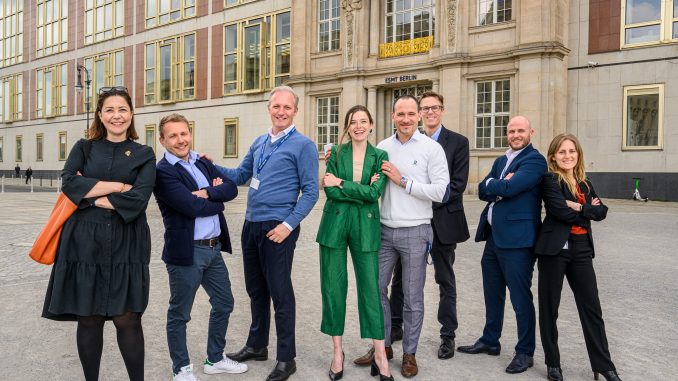
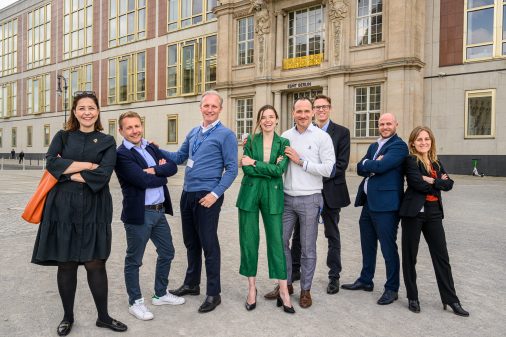
During the last few months, I have continued to study intensively. We had three modules to complete during that time, as well as some exams and submissions. Furthermore, the main part of the compulsory subjects, i.e., the subjects that are required and in which you are not allowed to fail, has been passed. Hooray!
In my last article, I gave a summary of the second residency and some additional information regarding the third residency. This is where I would like to continue and give you further insights.
What happened in between?
For the most part, the on-campus blocks took place at approximately two-month intervals. There was a lot of preparation required during this time so that we could make our own contributions during the teaching sessions.
In the third residency, we had only completed the Business Strategy subject. Corporate Strategy was added in the fourth residency. In this subject, as in most, the focus was on learning with case studies. This is particularly helpful to give the theory a real context. The case studies introduce various industries, which helps us gain broader knowledge beyond our own industries.
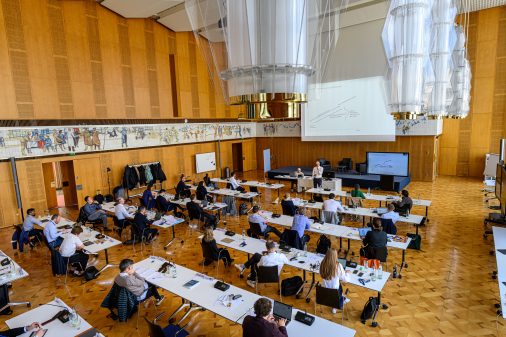
Social activities
So far, we have had the opportunity to participate in an after-school event at each residency. In the fourth module, we went boating together. And no, this time they didn’t ask me to take the wheel. It was a much larger boat than I had been allowed to steer in Residency 1.
The trip included an evening buffet and the weather cooperated very well. We were able to enjoy a glass of wine or beer and chat comfortably with each other.
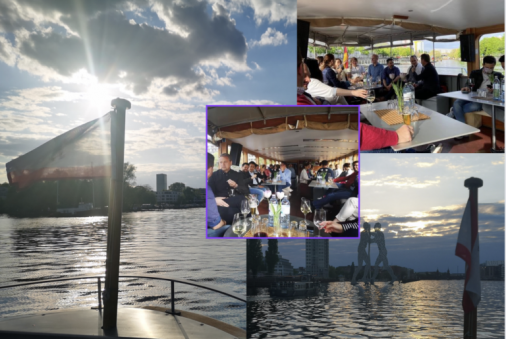
The Global Network for Advanced Management (GNAM) Week
GNAM is a global network of 31 business schools that collaborate in academic exchange, research, and student exchange. GNAM Week provides us with the opportunity to study at a partner school for one week.
Before our fourth residency, we were given a choice of diverse course options for the fifth residency, which is GNAM Week. We were asked to select three courses ranking our preferences and submit them in advance. Afterward, depending on the popularity and number of places, it was decided which of the three courses would be taken. Here is the list of courses we could choose from.
Crises and issues leadership
I was selected for the course “Crisis and issues leadership” at the Australian Graduate School of Management. The reason why I was interested in this subject is that every company can get into a crisis, and the action to be taken in such a situation must be well thought out.
Before the course, I probably would have panicked, but now I have enough tools to be able to develop a structured approach in such situations and thus hopefully manage the crisis successfully.
But let’s start from the beginning. What are crises in general? Of course, one can think directly of wars, natural disasters, or similar. But the concept of a crisis is much broader. Examples of a corporate crisis could be that the supply chain is not working and the main product is not possible to produce. Or that a factory worker has a serious accident or similar situation. In this regard, the course met my expectations and I was able to gain a lot of knowledge from approach and leadership skills, to crisis communication with the press, relatives, and even the management board. That is only a sample of the knowledge I gained.
General information
The course did not take place over six days as usual but was held for only five days. Each day was split into preparation time and the live course itself. At this point, I must say that the course times and the amount of preparation can differ from course to course.
Depending on which course you have enrolled in, it may be possible to take only half a day off. Personally, I was surprised because the amount of time to prepare clearly deviated from the usual residencies. But since I had to additionally prepare for a small network online course (SNOC) anyway, I could use the time effectively. However, more about that to come in future articles.
The class at the GNAM Week was well mixed with students from several universities worldwide. Isn’t it great that you can sit in a class together with students from Japan, America, South Korea, and many more? The course started every day at 10 p.m. Sydney time, which shows the flexibility of the university and the professor.
Online experience
It should also be mentioned that this module usually takes place on-site at the respective university. Since it was still uncertain how the Covid crisis would develop, it took place remotely.
As a class, we found the situation very unfortunate as in normal circumstances, we would have three out-of-town residencies. After we passed on the feedback to the program managers, an alternative was actively sought. As an exception, we have the option to participate in an additional, voluntary module. This will take place in Lisbon.
This showed me once again how much ESMT pays attention to feedback and tries to find a satisfying solution for those involved. I found the flexibility excellent. Initially, Moscow was the destination plan, but because of the current circumstances, an alternative was found in a timely manner. But I will tell you more about this module later. Of course, I have registered for it.
Group Meitner
I would like to dedicate the last paragraph to my group. Last week we had our last Meitner group assignment and were supposed to analyze a challenge in digital transformation in the subject Organizational Behavior. The group now ends with the fifth residency. Currently, with eight electives, divided into four groups each, we can choose one at a time. Depending on the elective, one is then assigned to new groups.
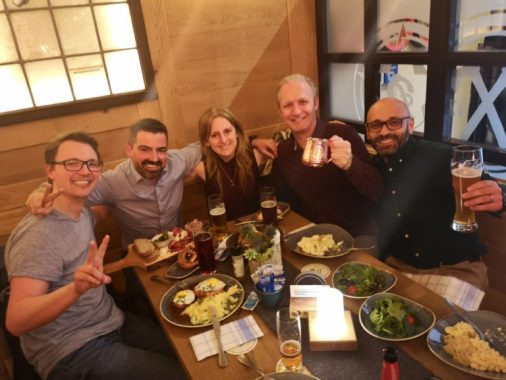
I am almost getting sentimental at the thought of our time together coming to an end. We went through ups and downs within the meetings and still delivered everything on time. We mastered all tasks together, such as setting up the hypotheses for the foundation of our own company, the analysis of any case studies, such as the valuation of a company, or even a marketing analysis with a plan, to name just a few. It’s good that there are other modules where we can see each other and exchange thoughts. But to conclude here, I really enjoyed the group work and I thought the dynamic of the team was spectacular.
This article was originally published on my blog here.
